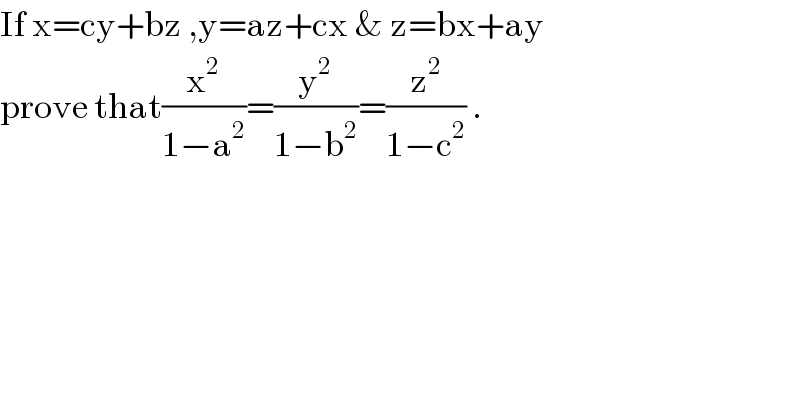
Question and Answers Forum
Question Number 27503 by Rasheed.Sindhi last updated on 07/Jan/18

Answered by mrW1 last updated on 07/Jan/18

Commented byRasheed.Sindhi last updated on 07/Jan/18

| ||
Question and Answers Forum | ||
Question Number 27503 by Rasheed.Sindhi last updated on 07/Jan/18 | ||
 | ||
Answered by mrW1 last updated on 07/Jan/18 | ||
 | ||
| ||
Commented byRasheed.Sindhi last updated on 07/Jan/18 | ||
 | ||